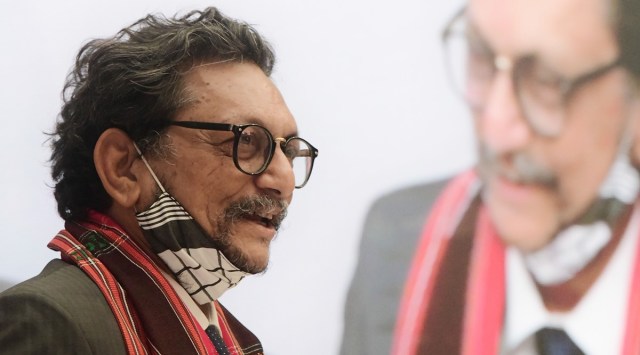Emphasising the need to “facilitate timely appointment” of judges to resolve the “crisis situation” in High Courts, the Supreme Court on Tuesday laid down a timeline for the Centre to clear names recommended by the High Court Collegiums.
The Bench, headed by Chief Justice of India S A Bobde, also said that if the Supreme Court Collegium reiterates a recommendation sent back by the government, the “appointment should be made within 3 to 4 weeks”.

According to the timeline fixed by the Bench, which included Justices S K Kaul and Surya Kant:
* “The Intelligence Bureau (IB) should submit its report/ inputs within 4 to 6 weeks from the date of recommendation of the High Court Collegium, to the Central Government.”
* “It would be desirable that the Central Government forward the file(s)/ recommendations to the Supreme Court within 8 to 12 weeks from the date of receipt of views from the State Government and the report/ input from the IB”.
* “It would be for the Government to thereafter proceed to make the appointment immediately on the aforesaid consideration and undoubtedly, if Government has any reservations on suitability or in public interest, within the same period of time it may be sent back to the Supreme Court Collegium with the specific reasons for reservation recorded.”
* “If the Supreme Court Collegium, after consideration of the aforesaid inputs, still reiterates the recommendation(s) unanimously…, such appointment should be processed and appointment should be made within 3 to 4 weeks.”
Story continues below this ad
The Bench noted that “High Courts are in a crisis situation” and “there are almost 40% vacancies in the High Courts, with many of the larger High Courts working under 50% of their sanctioned strength”.
The Bench rejected the contention that laying down a timeline “would be contrary to” certain “observations made in the Third Judges case”, saying the “observations” referred to “deal with the judicial review of a particular appointment and not such aspects of the appointment process like delay”.
The issue of judicial vacancies came up when the court was hearing a petition seeking transfer of a case from the Orissa High Court due to the lawyers’ strike there.
During the hearing, Attorney General K K Venugopal told the Bench that against the sanctioned strength of 1,080 High Court Judges, 664 have been appointed but 416 vacancies remain. He said the government had only received 196 recommendations for the vacancies so far.
Story continues below this ad
Expressing concern, the Supreme Court said: “We cannot but note the importance of the Chief Justices of the High Courts making recommendations in time. The vacancies are known and the norms permit making recommendations up to six months in advance. However, even recommendations for 220 existing vacancies appear not to have been made, much less for vacancies which are going to arise in the next six months”.
Emphasising “the requirement and desirability of the Chief Justices of the High Courts” to “make endeavour to recommend vacancies as early as possible even if they are not made at one go”, the Bench said that in its earlier orders, it had noted the “apparent hesitation of some High Courts to recommend names when the earlier list(s) is in the pipeline”.
“We have opined that there is no such impediment to initiate a new process without waiting for the result of the earlier recommendations,” the Bench said.
“There are two stages at which the matter rests with the Government – the first when the Ministry processes the names; and the second post the Collegium of the Supreme Court taking a call in recommending such of the names as are approved by the Collegium,” it said.
Story continues below this ad
The Bench said that according to the Memorandum of Procedure (MoP) for appointment of judges, as finalised by the Supreme Court Collegium on March 10, 2017, the “states may take not more than six weeks to send their views” and the “Central Government can presume no objection of the state government, if their views are not received within six weeks”. It said there was “no timeline prescribed for the Central Government to forward recommendations”.
Citing the MoP, the Bench said the Chief Justice of India must “send recommendations/ advice to the Law Minister within four weeks” and the Law Minister must “put up the proposal to the Prime Minister within three weeks for advice of the President”.









